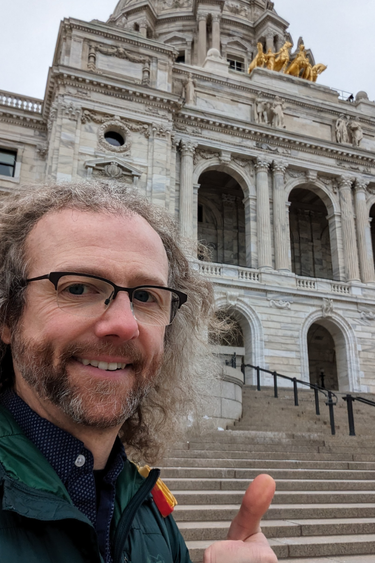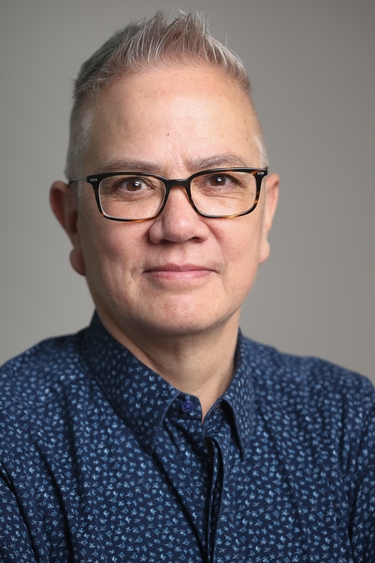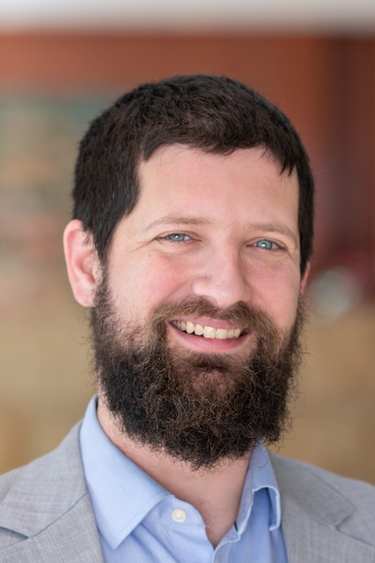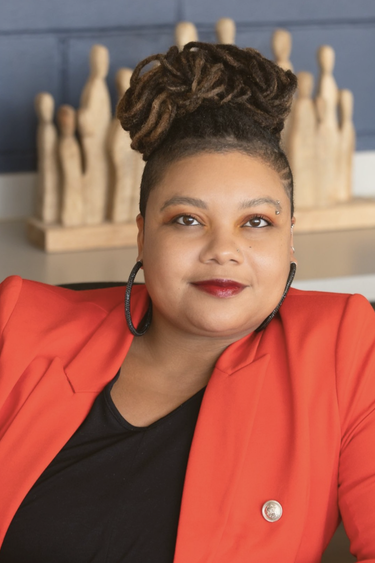Reflecting on the Dreams of the Chicago Freedom Movement and Their Pursuit for Fair Housing
The 1960s Chicago Freedom Movement, one of Dr. Martin Luther King Jr.'s most under analyzed forms of racial protest, is a time period worth reexamining. Chicago was one of the most residentially segregated cities in the country in the mid 1960s. Black home buyers were effectively barred from predominantly white neighborhoods. Through organizing and protest the Chicago Freedom Movement advocated for “open housing” – the right for Black home buyers to purchase anywhere they wish. Dr. King and his team would send large numbers of Black people into suburban real estate offices to “test” whether or not the real estate agent would make properties available for them to view or not. They aimed to uncover discriminatory practices which were confirmed time and time again.
While we have made progress since the Chicago Freedom Movement and the passage of the Fair Housing Act in1968, this panel reflected on what has changed since Martin Luther King Jr. and his fellow organizers piloted testing to prove discriminatory practices were persisting and perhaps what still needs to change.
Panelists:
- Eric Hauge, Executive Director of HOME Line
- Jennifer Ho, Commissioner of Minnesota Housing
- Ben Horowitz, Senior Policy Analyst, Community Development and Engagement, Federal Reserve Bank of Minneapolis
- Nelima Sitati Munene, Executive Director, African Career Education & Resource, Inc (ACER)
Moderator:
- Dr. Brittany Lewis, Founder & CEO of Research in Action and Sr. Research Associate at CURA (‘15 PhD, feminist studies)
What's Next? Roundtable Series
The College of Liberal Arts is hosting a series of roundtable discussions with community leaders and advocates that ask "What's Next for the Dream?" These discussions will explore where we are nationally and locally with regard to some of the demands put forward at the 1963 March on Washington for Jobs & Freedom where the Rev. Dr. Martin Luther King, Jr., delivered his historic "I Have A Dream" speech.

Eric Hauge is the Executive Director of HOME Line. Eric joined HOME Line after obtaining his B.A. in Political Science and Peace Studies from Gustavus Adolphus College in 2003, later earning a Masters Degree in Public Policy from the Humphrey School of Public Affairs in 2009. His research at the Humphrey Institute involved analyzing Twin Cities metropolitan regional approaches to affordable housing planning and preservation.
At HOME Line, Eric has participated in numerous community organizing efforts to improve rental housing conditions throughout Minnesota including: long-term preservation of federally subsidized housing, repair of substandard housing conditions and emergency situations, and to prevent displacement from affordable private market rentals. He’s door-knocked thousands of rental unit doors throughout Minnesota and has contributed to original research focused around challenges to Section 8 voucher placement and the implications of evictions. Eric has advocated for stronger tenants rights and meaningful Fair Housing protections on local (city licensing, inspections, and anti-displacement protections), state (improvements to Chapter 504B and increases to the MN Renters Credit), and federal (HUD and USDA) levels. Read commentaries by Eric on the HOME Line website.
Eric currently serves as the Secretary of the Board of Directors for the Housing Justice Center and holds a position on the Homes for All Coalition Advisory Board.

Jennifer Leimaile Ho is the seventh Commissioner of Minnesota Housing, appointed by Governor Tim Walz in January 2019 and reappointed in 2023.
The Commissioner has been working to end homelessness since 1999, first as executive director of Hearth Connection and later as deputy director at the U.S. Interagency Council on Homelessness. Her roles have focused on the intersection of health and housing, particularly health care financing and improving outcomes associated with supportive housing.
Commissioner Ho served as the Senior Advisor for Housing and Services at the U.S. Department of Housing and Urban Development in the Obama Administration and worked with First Lady Michelle Obama to launch the Mayors Challenge to End Veteran Homelessness.
She currently serves on the board of the National Council of State Housing Agencies and the Melville Charitable Trust. Commissioner Ho received her bachelor’s degree in philosophy from Bryn Mawr College.

Ben Horowitz is a senior policy analyst in the Minneapolis Fed’s Community Development and Engagement Division, where he investigates and writes about policies and programs impacting housing affordability, labor market institutions, and investments in low- and moderate-income communities. Before coming to the Bank, Ben worked for a labor union and in the nonprofit sector. Read some of Ben's content on the Fed's website.

Dr. Brittany Lewis is a well-respected community engaged qualitative scholar, thought leader, author, and professor known for bringing those most often locked out of local decision-making processes to the action research table for close to 10 years. Dr. Lewis is the Founder and CEO of Research in Action, an urban research consulting firm, and is currently a Senior Research Associate at the Center for Urban and Regional Affairs (CURA) at the University of Minnesota. Formerly, Dr. Lewis was a Minneapolis Federal Reserve Bank Scholar in Residence and Visiting Assistant Professor at Macalester College in Political Science and American Studies.
Dr. Lewis’ is the Principal Investigator of the Illusion of Choice: Evictions and Profit in North Minneapolis report and the Co-Principal Investigator on the recently published report entitled: The Diversity of Gentrification: Multiple Forms of Gentrification in Minneapolis and St. Paul. Dr. Lewis’s research was used in a Minnesota Supreme Court to expand rights for tenants facing evictions, as direct testimony at the Minnesota State Legislature, and to inform the human services and public safety impact agenda within Hennepin County and the City of Minneapolis. Dr. Lewis has consulted with philanthropic partners such as the Pohlad and Graves Foundation who refer directly to Dr. Lewis’s research as they develop their own scope of work and strategic plans of action.